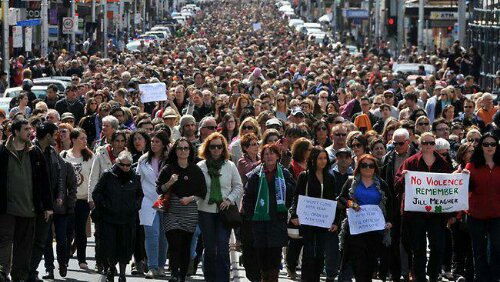// October 13th, 2012 // No Comments » // International, Research
Check-out this research taking place in the UK: Hate crime victims sought for academic study http://www.thisisleicestershire.co.uk/Hate-crime-victims-sought-academic-study/story-17055572-detail/story.html
Maybe similar research can take place in Australia to this UK study where criminologists are appealing for victims of hate crime to come forward and take part in a study.
The two-year project at the University of Leicester aims to examine the experiences of those who are victimised because of their identity, vulnerability or perceived difference. Dr Neil Chakraborti, who is leading the research with Jon Garland said: “We’ll be working with the widest range of victims ever covered in a single hate crime study. “We’ll be working closely with criminal justice agencies, including the police, because we want the research to make a real difference to policy and practice.”
The research will use an extensive online and written survey, complemented by hundreds of in-depth interviews with victims. The findings will be summarised in reports and articles during the project.
If you are visiting Australia or elsewhere in the world and are reading this, but live in the UK and wish to be part of the study, e-mail: uolhatecrime@le.ac.uk and more info is available from: http://www2.le.ac.uk/departments/criminology/people/stevie-jade-hardy/stevie-jade-hardy?searchterm=uolhatecrime
Stevie-Jade Hardy has just begun a role as a Research Associate for the Leicester Hate Crime Project, a two-year study funded by the Economic and Social Research Council, led by Dr Neil Chakraborti and Jon Garland. This will be Britain’s most comprehensive study of hate crime, examining the experiences of those who are victimised because of their identity, vulnerability or perceived ‘difference’ in the eyes of the perpetrator. By exploring hate crime in a broader sense of “targeted victimisation”, the project will investigate the experiences of the more “recognised” hate crime victim communities, including those who experience racist, religiously motivated, homophobic, disablist and transphobic victimisation, as well as those who are marginalised from existing hate crime debate and policy framework. The project will also be exploring victim’s experiences and expectations of criminal justice agencies and other organisations in a position to offer support, in order to assess the needs of victims and to identify lessons for effective service delivery.




